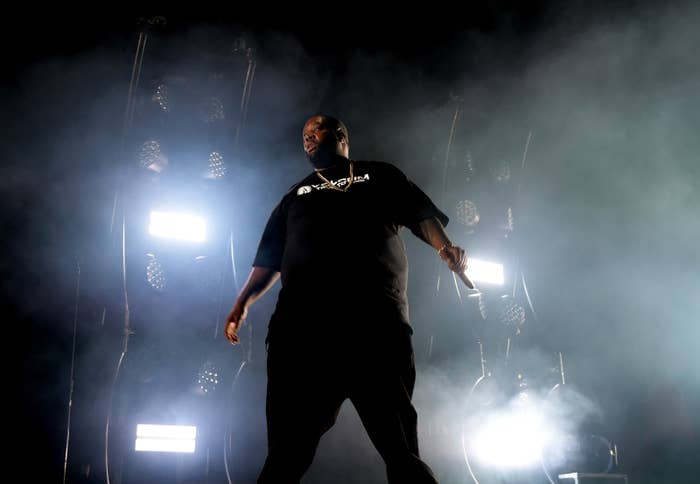Chance the Rapper, 21 Savage, Meek Mill, and other famous rappers filed a brief in the Supreme Court on Wednesday in an attempt to help overturn the conviction of a Pennsylvania rapper who went to prison for allegedly threatening police officers in one of his songs.
As reported in the New York Times, Jamal Knox, a Pittsburgh artist who raps under the name Mayhem Mal, was arrested in 2012 on gun and drug charges. Knox and a friend then recorded a song titled “Fuck the Police” that called out the arresting police officers who were set to testify against him.
“Let’s kill these cops ’cause they don’t do us no good,” the rappers sang on the track.
After releasing the song on YouTube and Facebook, Knox was charged with issuing terroristic threats and intimidating witnesses. He was subsequently jailed in 2014, but maintained he had been putting on a persona in the song.
His lawyers are now petitioning the Supreme Court to review the case, writing, “The song’s lyrics were never meant to be read as bare text on a page. Rather, the lyrics were meant to be heard, with music, melody, rhythm and emotion.”

In the amicus curiae brief filed by Killer Mike, 21 Savage, Chance the Rapper, Meek Mill, and others, the rappers said the court is “deeply unaware” of rap and hip-hop music, and offered the justices what they described as “a primer.”
“A person unfamiliar with what today is the nation’s most dominant musical genre or one who hears music through the auditory lens of older genres such as jazz, country or symphony may mistakenly interpret a rap song as a true threat of violence,” they wrote.
The brief, which was also written by several scholars, even included an explanation of “diss tracks,” which are described as “recorded songs in which rappers insult, or ‘diss,’ one another.”
“In short, this is a work of poetry,” the rappers wrote. “It is told from the perspective of two invented characters in the style of rap music, which is (in)famous for its exaggerated, sometimes violent rhetoric, and which uses language in a variety of complex ways. It is not intended to be taken literally, something that a reasonable listener with even a casual knowledge of rap would understand.”
R. Stanton Jones, one of Knox’s lawyers, told the New York Times that black men like Knox are “almost always targeted in these cases” compared to rappers who are white or more popular.
“While famous rappers like Eminem win Grammy Awards and make millions off the violent imagery in their songs, judges and juries are routinely convinced that lesser-known rap artists are somehow living out their lyrics as rhymed autobiography,” Jones said.
“It’s an alarming trend, often with devastating consequences for the young men of color.”
Killer Mike, whose father was a police officer in Atlanta, told the Times that rap was treated differently from other music genres.
“I can tell you that the lyrics are dark and brutal when Johnny Cash describes shooting a man in Reno just to watch him die,” he said, “and when Ice Cube rapped about a drive-by shooting early in his career.”
